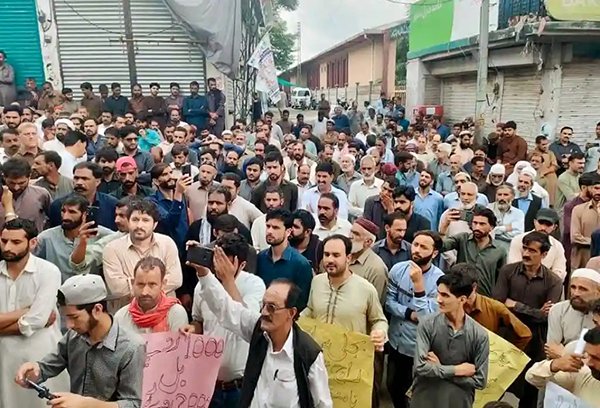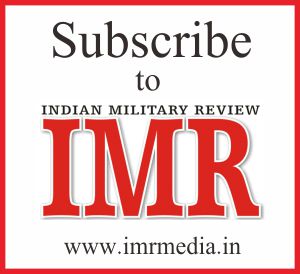Amidst news of flour and food crisis across Pakistan, the Pakistan Occupied Kashmir (PoK), Gilgit Baltistan (G-B) is again making headlines as residents are furious over the discriminative policies of the Pakistan government that has exploited the region for several decades and are now demanding a reunion with India in Ladakh.
Several videos on the internet show the extent of the discontent among residents.
A video showed a massive rally in Gilgit-Baltistan, wherein demands were raised for the reopening of the Kargil road and reunion with fellow Baltis in the Kargil district of the union territory of Ladakh in India.
Protests have been going on in the region for the past 12 days now. Various issues, like the restoration of subsidies on wheat and other food items, load-shedding, illegal land occupation, and the exploitation of the natural resources of the region have been raised by the residents.
The military establishment of Pakistan continues to exert coercive claims over the land and resources of the Gilgit-Baltistan region.
Widespread protests have also been witnessed against the Pakistan army and government.
The issue of land has persisted for decades, but since 2015, locals have been arguing that the land belongs to GB’s people, as the region is in PoK. However, the district administration maintains that the land has not been transferred to any individual belonging to the Pakistani state.
Economic crisis and anti-Pak protests
Pakistan is grappling with a major economic crisis as people across the nation are struggling to make ends meet. Basic needs in the country have become a luxury as there is no wheat.
Meanwhile, the prices of everyday commodities are soaring.
Residents of Gilgit Baltistan have come out in massive crowds and are demanding a traditional route leading into the Kashmir valley be opened for trade.
Trouble for residents mounted in November last year, due to cuts in wheat subsidies to the region, following the severe crisis in wheat imports from Ukraine.
This region comes under a government led by Imran Khan’s party, Pakistan Tehreek-e-Insaf (PTI), which, according to critics, has been deliberately kept short of essentials.
Pak seeks financial aid
On 12 January, Pakistan Prime Minister Shahbaz Sharif paid a visit to the UAE where he met Abu Dhabi ruler Sheikh Mohammed bin Zayed Al Nahyan.
During his interaction, Sharif sought a $2 billion loan to his country and an additional $1 billion in the name of flood relief, which the gulf nation has granted, according to Pakistan.
However, Emirates did not immediately acknowledge the rollover of the loan and the granting of the additional billion.
On 11 January, Sharif said several countries and some of the world’s institutions have pledged $9.7 billion to help Pakistan rebuild from the summer’s catastrophic flood that killed 1,739 people. The floods destroyed more than 2 million homes and caused more than $30 billion in damage.
In 1971, Pakistan lost its Eastern half, East Pakistan, after the Bangladesh Liberation War, which caused huge losses for Pakistan.
Notably, Pakistan has been a member of the International Monetary Fund (IMF) since 1950.
Due to the unpredictable nature of its economy and its dependence on imports, the IMF has provided loans to Pakistan on at least twenty-two occasions, the most recent being in 2019.
Why is Gilgit-Baltistan crucial for India?
“India’s northward journey of development will be completed after reaching Gilgit and Baltistan,” Raksha Mantri Rajnath Singh had said in October last year.
When Raksha Mantri made this statement, he was referring to a 1994 resolution, passed in the Parliament on getting back the territories.
The Gilgit Baltistan often referred to as G-B, is famous for its magnificent glaciers which feed rivers (River Indus), which account for 75 per cent of the stored water supply in the country.
On 26 October 1947, Maharaja Hari Singh of Jammu and Kashmir, faced with an invasion from tribal fighters coming from Pakistan due to the 1947 Jammu Massacre along with the 1947 Poonch rebellion, signed the Instrument of Accession, joining India.
Gilgit’s population did not favour the state’s accession to India.
While the residents of the region expressed a desire to join Pakistan after gaining Independence, the neighbouring country did not merge with the region, citing its territorial link to Jammu and Kashmir. Now, considering the current situation in Pakistan, residents of G-B are demanding a reunion with India.













